IGotW Special: Indie Bundle of the Century: Part 3
By Mento 0 Comments
I've got some time between major backlog games right now, so how about another five hits of short and sweet delights from the mega-sized Itch.io Bundle for Racial Justice and Equality? I imagine I'll be chipping away at this enormous batch of games for many years to come, which is why I've been tossing several smaller games together so as to better highlight what the bundle has in store (and to shout-out the generous devs who freely lent their creations to a noble cause).
Be sure to check out the first two parts of this rapid-fire round-up here (Part 1) and here (Part 2). (Disclaimer: These games have been selected based on their perceived length and depth, though I'll be the first to acknowledge it's not always easy to tell just how much they have to offer.)
LaserCat
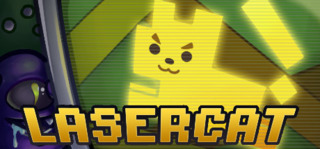
LaserCat's fun, if a bit on the light side (heh, laser humor). Your owlfriend has been kidnapped by a space frog wizard and it's up to the eponymous photonic feline to rescue them. Beyond that it's a standard 2D platformer with a non-linear progression that lets you explore the map in any direction you wish. The game's world is pretty huge - a 15x15 grid of single-screen rooms, making 225 in total - and while some of world is designed in such a way that you can only access areas from a specific direction, the vast majority can be accessed through multiple means. It does technically qualify as an explormer, even without progress-enabling upgrades: it's a platformer and you're required to explore for the keys you need to open your owlfriend's jail, so you can't get a more literal interpretation than that.
LaserCat shares a lot of DNA with VVVVVV, and not just in the way both games are presented like a classic single-screen ZX Spectrum platformer with drily witty room names. Both have carefully considered the appeal of Spectrum paragons like Jet Set Willy and the sense of adventure they evoke with their branching paths to delve and shiny collectibles to find and how these games - at least those emanating from the European/British markets - were often filled to the brim with subtle humor and broad silliness. This allowed designers to embark on ever more personalized creations, vital in a time where 8-bit graphics were approaching a level of complexity that allowed for inchoate video game personalities to form, and so it left a lasting impression on the generation of British kids that grew up with them. A novel aspect to LaserCat, albeit one that is still germane to the era it hails from and the game's sense of humor, is how every key item is attached to a trivia question: get the question wrong, and it'll warp you to a death pit. Keys need to be banked at checkpoints before they "count," so the combination of reaching the keys, solving their riddles, and getting back to safety can often present a challenge. Most of the questions are just excuses for goofy riddles, though, so they're usually not that difficult to answer.
Sadly, the Itch.io version of LaserCat suffers from a major bug where you cannot jump from moving blocks. There are only a few cases where this is an issue, as the game's approach to level design lets you skip by most of them, but one gauntlet of moving blocks in particular is the only means to get one of the game's keys: without it, completing the game is impossible. I'm now sitting at a map menu screen with 99.57% progress and no means to continue, which is exasperating to say the least. Doesn't sound like this bug is still in the Steam version, however, if that's what you end up buying. (3 Stars.)
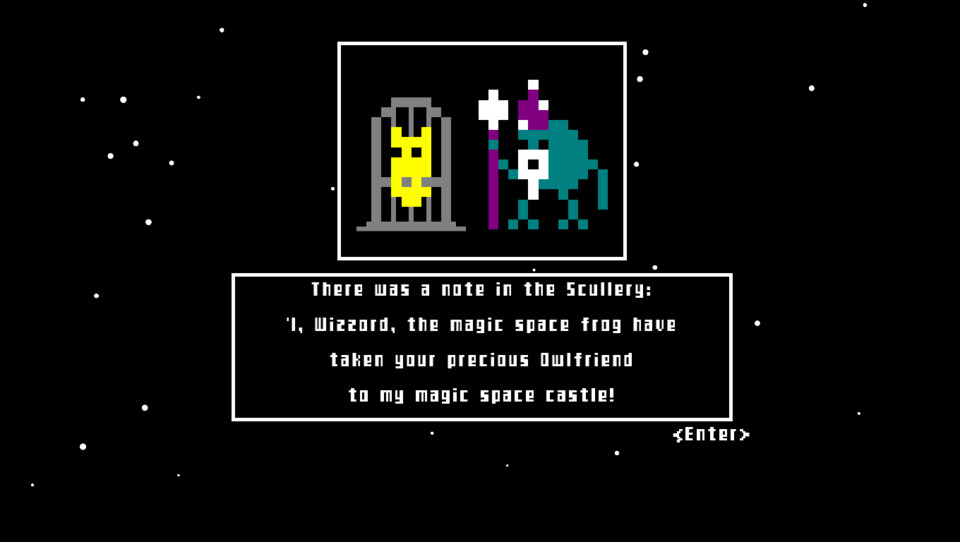
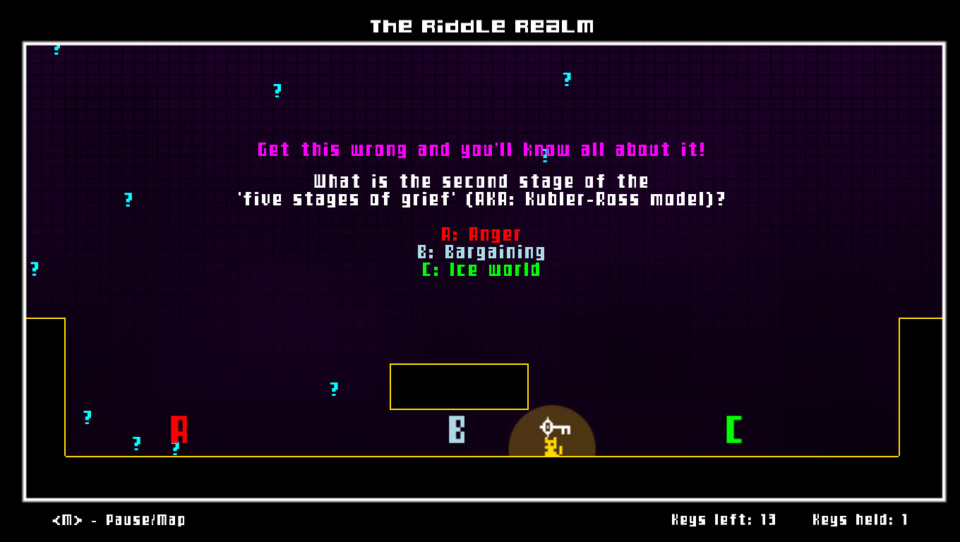
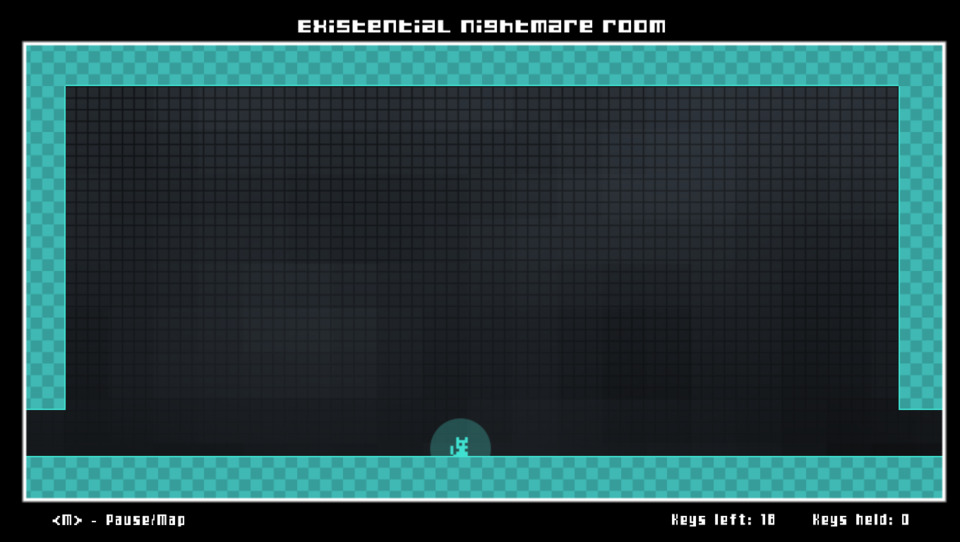
- LaserCat is available to buy on Itch.io and Steam, and previously available on Desura and Xbox Live Indie Games.
Lyne

Lyne's another puzzle game like Sidewords (reviewed in Part #1) in that there's a hell of a lot more content in here than I was expecting, and I was ready to bounce before I even hit the half-way point because I could tell my brain would've started objecting if I progressed too much further. Lyne is based on a relatively simple premise: draw a straight line between a pair of terminal nodes, including every other node of the same color along the way, by moving around a grid horizontally, vertically, or diagonally without intersecting with any other line. It's a brainteaser format frequently seen in adventure games with "Mensa-style" puzzles, such as those favored by Professor Layton, Puzzle Agent, and any number of HOPAs (Hidden Object Puzzle Adventures).
A game like this works first on repetition, to ensure you have a baseline understanding of the mechanics in play, and then escalation, as it introduces new features that not only force you to incorporate new strategies to supplant the old but gives the designers far more variation to work with for subsequent puzzles. The first major change-up is a special node that requires two lines to pass through it: you have to fully activate it along with everything else before the puzzle is complete which is an extra layer of challenge, but it also allows lines to cross. The second big step is the introduction of a third set of terminal nodes, which requires you consider how to build paths between all three pairs that somehow don't run afoul of one another. The straightforward click-and-drag (or touchscreen, as this game is available on mobile devices) interface and customary soothing tones of the BGM are absolutely typical of this genre, but I guess you don't really come to puzzle games for an out-there presentation: what matters is the content, and specifically the slow burn of incremental variation and the smoothness of its difficulty curve. Lyne is handling both well enough so far.
I was ready to pack it in after the first three groups of puzzles (each "set" comprises of 25 puzzles, and I'm sure the game has at least fifteen sets based on some of the unlockables) but I suspect I could've gone on a little longer before the old gray matter left a Dear John letter and headed off for greener pastures through the nearest ear. The game's also got a "Daily Puzzle" system which, again offers an incredible 50 new puzzles a day. I don't know if there's some algorithm the developers came upon that lets them generate these things, or if the days loop, but I liked how they employed the New York Times crossword's system of giving you an easy time on Monday and ramping it up gradually to a Sunday nightmare. At any rate, I think I'll be picking away at this one for a while yet. (4 Stars.)
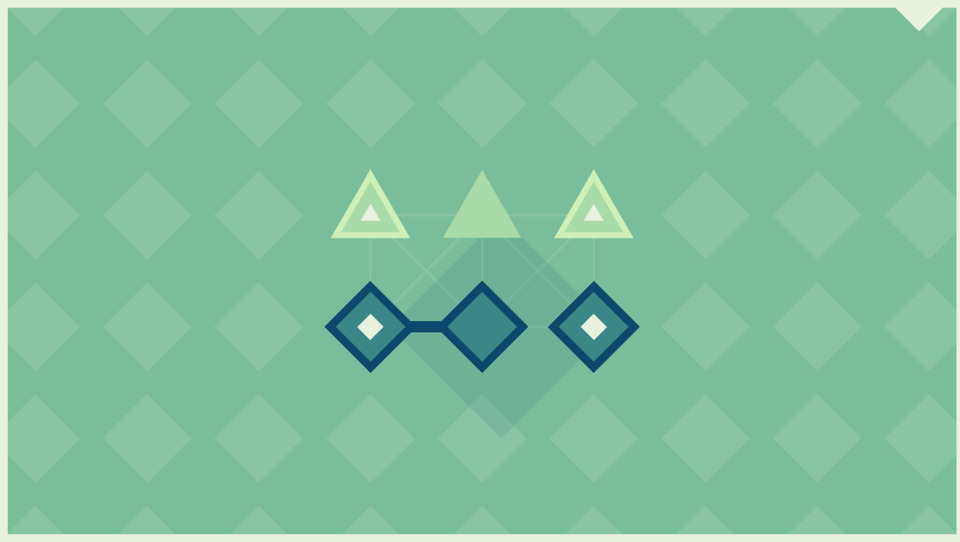
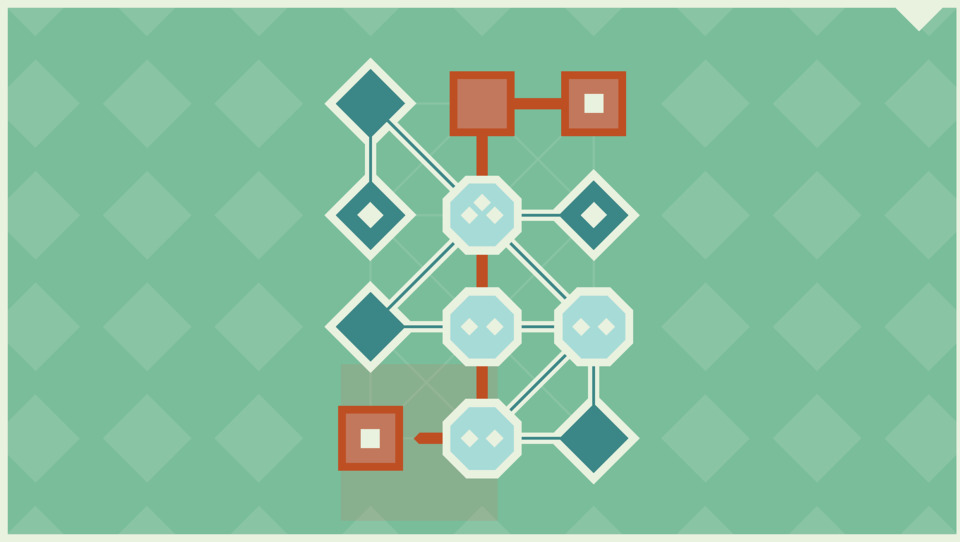
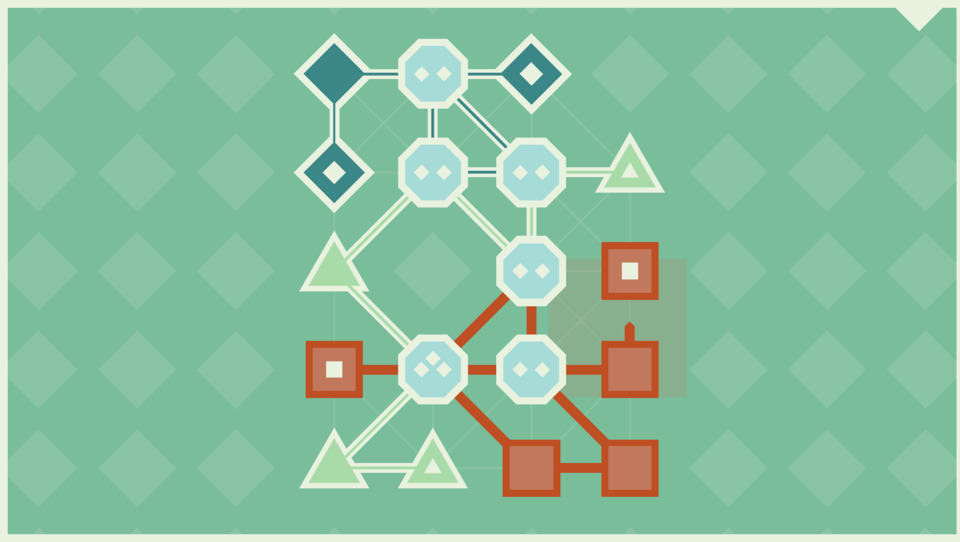
- Lyne is available to buy on Itch.io, Steam, iOS, and Android devices via GooglePlay.
Shipwreck
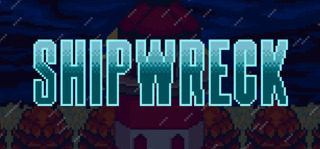
With my limited experience with both, I can say that designing games is a bit like cooking. Until you're practiced enough that you can start letting your imagination go wild, it's often better to follow an extant recipe for your first few forays with perhaps only a few minor modifications. So it is with many Indie games that deliberately ape certain pre-existing icons, usually one their developers played over and over growing up, in that they give their designers the confidence they need to eventually carve out their own niche in video game history. Frequently, those "template games" tend to hail from the Legend of Zelda franchise, and Shipwreck is no exception. Very consciously adapting the rough story outline of being shipwrecked on a cursed island and the more compact level/graphical design of Link's Awakening (the original GB one, anyway), Shipwreck is a no-frills adaptation of the Zelda model complete with the requisite dungeon maps and heart container upgrades.
While I found Shipwreck charming as a microcosm of the Zelda formula, there's no getting around the fact that the game is a little too beholden to the recipe it followed without a whole lot of innovation or quirk to call its own. Many of its dungeons boil down to running through a maze fighting the same two creatures (though these two are different for each dungeon) and occasionally hitting buttons or finding and using small keys. There's only a handful of what I'd call traditional Zelda puzzle scenarios, and they tend to be the same ones we've seen many times before: Sokoban block-pushing to weigh down buttons, flipping switches to alternate spikes that either allow or prevent egress, and dropping down the right pits to access new areas of lower dungeon floors. Graphically and musically it's competent enough - the developers outsourced the latter to a middleware VGM studio and it's pretty catchy - but the game overall sits in the same part of my brain that something like Neutopia does: a very utilitarian ersatz that lacks much to distinguish itself.
I will say there are some risks that Shipwreck takes that occasionally pay off, though can come with caveats of their own. One is that enemies don't respawn (for the most part) and don't appear on the overworld, so you could hypothetically rid the island of its monster problem for good with enough determination. This makes getting back to the dungeon boss that much easier (sadly, the dungeons are huge and lack any kind of shortcuts or warps, so dying to the boss is a major pain) though it's also harder to source restorative items along the way. Speaking of which, I believe the game employs some sort of algorithm to make curatives drop more frequently when you're running low, which was always an adaptive difficulty feature I appreciated in other games. Shipwreck lacks the diversity of items that most Zeldalikes enjoy, limiting the player to their sword, shield, a lantern for dark areas, a crossbow for range, and a pickaxe which more or less functions as the sword but destroys rocks instead of bushes. This also greatly hinders the amount of variation the game can offer with its obstacles. So while there are some nice touches here and there, for the most part it's a whole lot of brown rice: filling but not exciting. (3 Stars.)


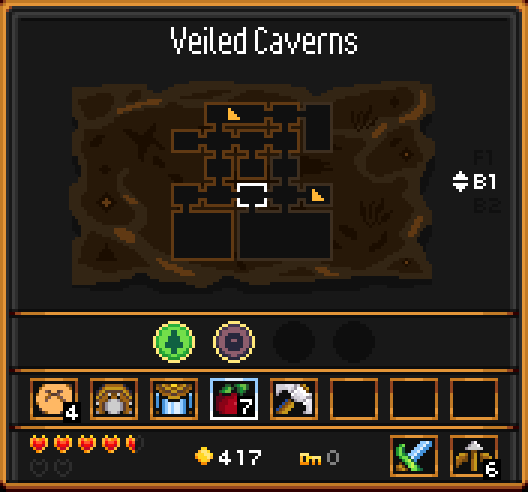
- Shipwreck is available to buy on Itch.io and Steam.
The White Door
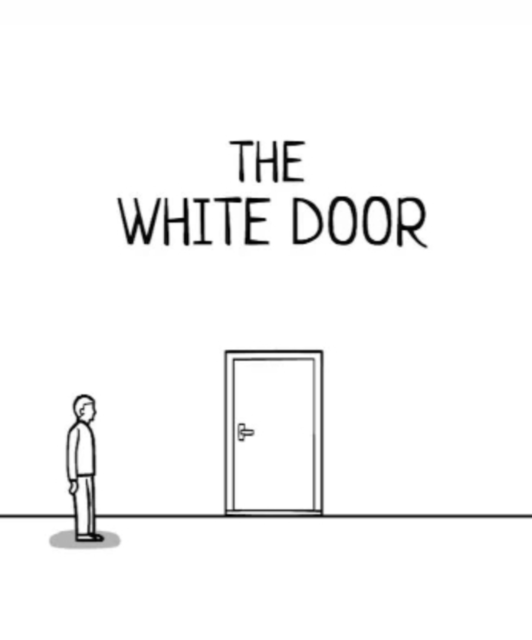
My hopes weren't high for this one, given its downer themes of mental health and the curative properties of maintaining a routine (hits close to home, as they say), but it won me over pretty quickly once I realized what it was up to and how much more a participant it made the player than many other games of its type. The White Door is about a mentally-unwell burnout named Robert Hill who enters an experimental wellness program to cure his depression following some initially-unexplained demoralizing circumstances, and how this treatment involves carefully following a checklist of objectives over the span of a day and then repeating that process for a whole week. Robert wakes up, eats breakfast, cleans himself up, checks in with the nurse, takes on memory tests, eats dinner, has some recreational time, and goes to sleep. He then dreams the dreams of a tortured mind and wakes to a new day of the same routine.
The game builds on the familiarity of this routine early on so it can subvert it later, as you might predict, but it's thankfully not too slow to get going: the game punctuates each day with flashbacks leading up to Robert's depression and has the player act out the narrative by manipulating the current scene (e.g. if Robert's narration mentions a character closing their eyes, the player must physically drag their eyelids down to continue the story). The nurse check-in, memory tests, and "recreation" aspects of Robert's routine are actual puzzles the player must solve too: the first requires gathering information about yourself from the effects you've left in drawers and boxes; the second starts with some simple pattern recognition and escalates in difficulty throughout the week; and the latter could be anything from lifting weights to correctly placing dominoes around a board. The game is always giving you something to do to draw you into Robert's healing process, while subtly and eventually not-so-subtly hinting at something untoward going on at the eponymous care facility.
I've noticed a slow trickle of these routine-based horror games (or "boo-tines," as I probably won't be calling them again), most notably Konami's creepy corridor simulator and prelude to broken dreams P.T. which inspired the majority of the rest, and they all work their magic by establishing the familiar and then twisting it into something decidedly unfamiliar. It's then you realize that the familiarity you were comfortable with wasn't actually that comforting at all, and the clues were always there that something was awry and that the bad news is only making itself more overt as you keep pressing on. I also really like the clean way the game presents itself: a lot of white space is used for Robert's spotless guest chambers, with only judicious flashes of color here and there, and the dull hues eventually become symbolically tied into the narrative. The game horizontally partitions itself so that the left side is usually given to moving around a zoomed out and more encompassing viewpoint of Robert's quarters while the right side is used to zoom in on the nearby environment (the computer, a table, the bathroom sink, etc.), which of course is another familiar element the game can mess around with later. It also has some fun with its 1970s setting, which is otherwise incidental. The game's story is one of those that is ultimately up to interpretation - a storytelling device I'm not always so hot on, but the way the normalcy and stark visuals gradually fall away to reveal the deeper waters beneath is very cleverly done, as is the developers' decision to constantly keep the player busy with handiwork so they never lose focus. (4 Stars.)

- The White Door is available to buy on Itch.io and Steam.
WitchWay
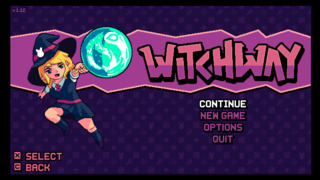
We're back in explormer territory again for WitchWay: a laser/block puzzle-focused exploration platformer from a group of four experienced Indie developers who have since gone their separate ways (the lead, Andrew Gleeson, worked on Titan Souls while the rest are attached to other similarly well-known Indies). Dropped down a well and left to her own devices, a witch must find and then use a magic wand to command magical purple blocks to help her escape. These blocks can hold down pressure pads, carry the witch to allow her to reach new heights, and are eventually able to stop or reflect lasers to activate switches.
The game ends fairly abruptly after it starts messing around with lasers about a couple hours in, though there's some added longevity in terms of collectibles: each room has a secret "eye" (these wall eye symbols are usually used to indicate when a switch has been pressed) and there also are eight bunnies hidden around the dungeon and a handful of well-guarded artefacts. WitchWay is an explormer much more in the vein of a Knytt Underground or Full Bore in that there's no combat to speak of, and progress is instead gated by solving the puzzles in each room. I quite like these more cerebral pacifist takes on the genre, especially when alternated with something far more RPG or combat heavy (like the recent IGotW candidate Sundered), and WitchWay has a typically cute compact pixel look that can occasionally make it tough to get the full scope of a room - not so handy when the switches and blocks could be in any direction - but at least allows for some detailed sprites. I appreciate too that getting your careless ass killed when trying to maneuver around the insta-death lasers or spikes simply respawns you to a moment before your demise, rather than resetting the whole room and forcing you to start the puzzle over.
Unfortunately, I can't say I had a great time with WitchWay throughout. Part of that is the conscious lack of a map system: you're meant to feel your way around the dungeon as it isn't very large and most areas connect to others in short linear loops, but given that there several concessions made to ensure you won't get lost - one is that a small fragment of the map is shown on the wall every time you enter a room, and another is a major map room that also keeps track of the eye collectibles - so the lack of a map you can summon any time is a little dispiriting. WitchWay also has some instability: it crashed pretty seriously three times while playing, to the extent of having to sign out to reset the desktop as it even took Task Manager out of commission. Towards the end I was gunning to complete the game as fast as I could, eschewing the last few collectibles, just so I could avoid another session-wiping hard lock. Even without the technical issues, it's just a little too brief and surface-level to offer much. (3 Stars.)
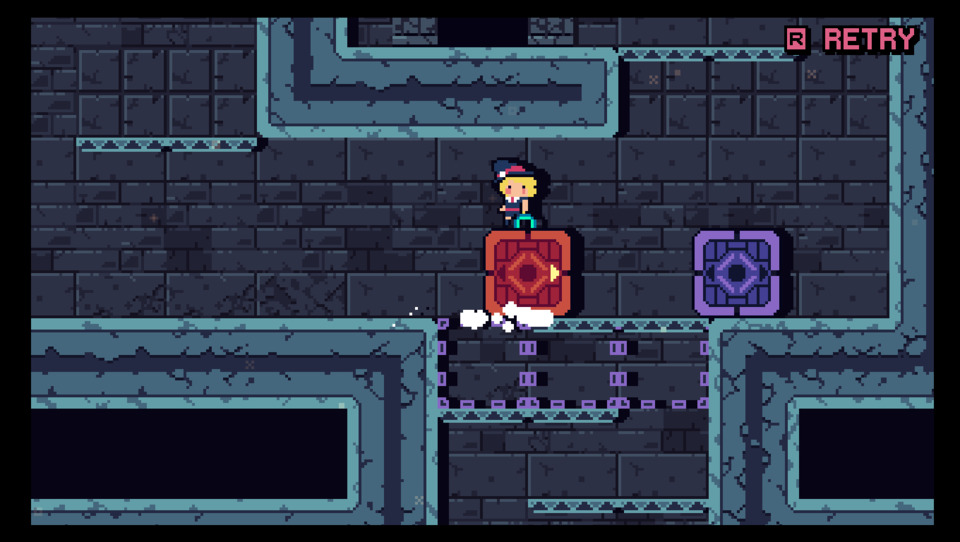
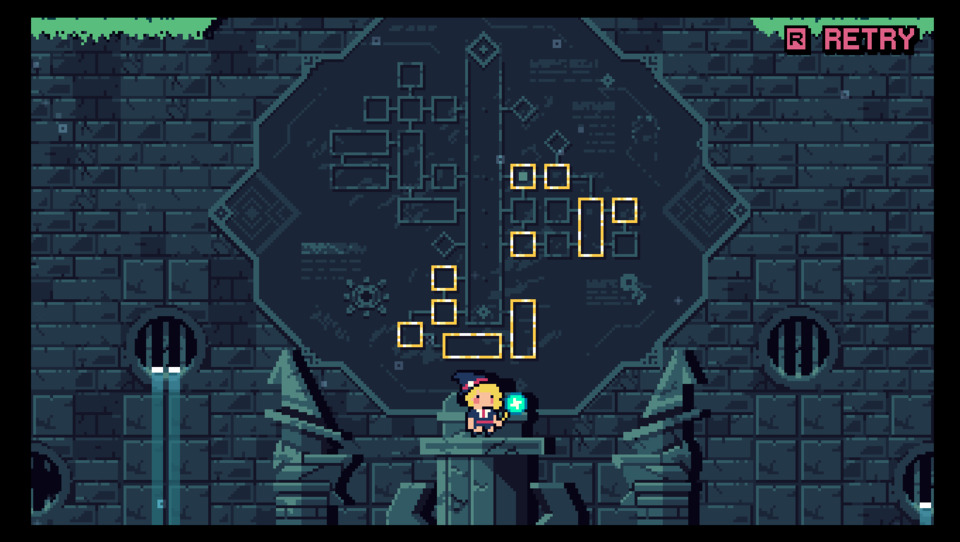
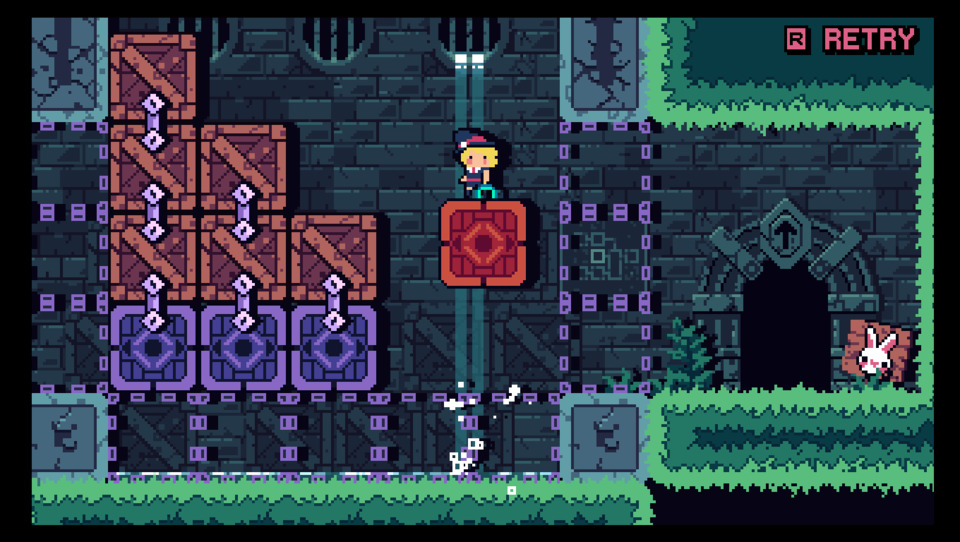
- WitchWay is only available to buy on Itch.io.
